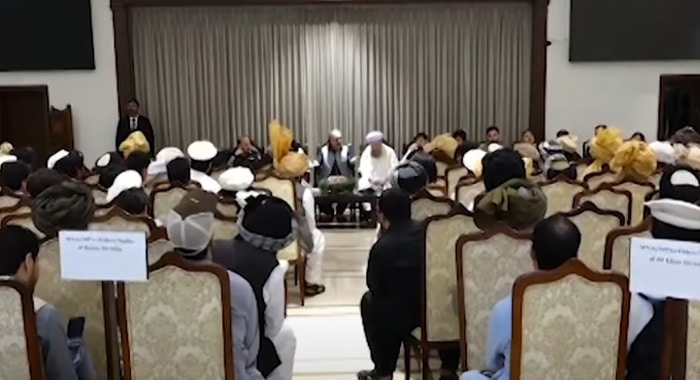In a series of consultative Jirgas initiated by the Khyber Pakhtunkhwa government, tribal elders, public representatives, and community stakeholders from multiple districts have unanimously emphasized the need for inclusive dialogue with the Afghan interim government and banned groups to secure lasting peace and stability across the region. The third Jirga in the ongoing series was held on Wednesday and brought together delegates from North and South Waziristan (Upper and Lower), as well as the tribal sub-divisions of Wazir, Bhittani, Darazinda, and Jandola. Participants reaffirmed that peacebuilding efforts must be rooted in meaningful consultation and consensus, calling for direct political engagement as the only viable and forward-looking solution.
These Jirgas are being convened following a multi-party conference held on July 24, which recommended a bottom-up process of district-level consultations ahead of a Grand Tribal Jirga. The ongoing regional meetings are designed to formulate strategic input, build political will, and select representative members for the proposed Grand Jirga.
The initial Jirga, held in Peshawar with participation from Orakzai, Dara Adamkhel, and Hassan Khel subdivisions, recommended the formation of a joint federal-provincial delegation, comprising tribal elders and civil society stakeholders, to initiate structured dialogue with Afghan authorities. Participants called for the provision of institutional and logistical support to facilitate this process.
The second regional Jirga, held on August 4 with representation from Bajaur and Mohmand, advocated for the creation of a broad-based and empowered platform that includes the federal and provincial governments, tribal leaders, and other key actors. The aim, they stressed, must be a unified peace initiative that addresses long-standing concerns of cross-border instability and ensures mutual understanding with the Afghan interim government.
Wednesday’s Jirga reinforced those recommendations and reiterated the demand for a formal dialogue mechanism. “We believe that political solutions emerge from engagement, not isolation,” said one participant. “Dialogue with both internal and external actors is necessary to bring clarity, trust, and stability to the region.”
Participants also expressed concern over the absence of any formal policy briefing during the session and called for greater transparency and clarity in the process moving forward. Several delegates voiced dissatisfaction with the prevailing ambiguity in the categorization of non-state actors, urging the state to adopt a unified and principled stance. “We reject selective labels. There should be one consistent national policy,” a participant noted.
One attendee shared that Chief Minister Ali Amin Gandapur had stated during the session that the provincial government intended to take the voice of the people forward to relevant forums, adding, “The public is our strength, and we intend to act in accordance with their will.”
Speaking to Dawn, provincial spokesperson Barrister Muhammad Ali Saif confirmed that constructive engagement with the Afghan interim government is a core component of the Khyber Pakhtunkhwa government’s peace strategy. “The people of this province want dialogue. We are merely amplifying their voice,” he said.
He added that the Terms of Reference (TORs) prepared in February for this purpose have yet to receive a response from the federal government. “This silence is deeply disappointing. Had these circumstances arisen in another part of the country, the process of engagement would have already begun,” he remarked.
The Jirgas will continue across tribal districts in the coming days, with the goal of preparing for a Grand Jirga that represents a unified, democratic, and locally driven vision for peace and regional cooperation.





